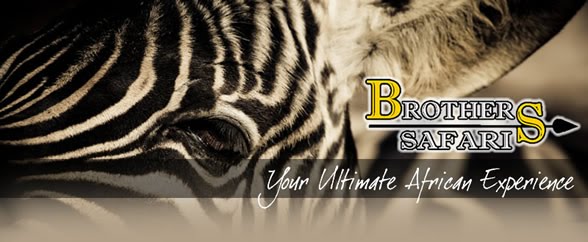“You have to keep ahold of that thing. This wind can tear that right out of your hand if you don’t hold tight.” I grip the handle of the gun tighter, nodding at the voice coming from the veterinarian in the seat behind me. “Are you ready?”
“Yep.” My reply sounds rather crackly and unfamiliar as it goes through the headsets and back into my ears.
Suddenly, the ground beneath me shakes and seems to fall away. I watch in astonishment as the trees and bushes become smaller and smaller as the helicopter begins its takeoff. My stomach does a turn in the seat as I feel the rush of wind come in from the opening to my left where the passenger door would normally be. A herd of beautiful red impala are grazing below me, looking like small children’s toys. But they aren’t what I’m after. A family of warthogs rush out from the bushes, tails straight up in the air as they trot away from the strange, noisy aircraft. They are not my target either. The helicopter dips into a tight turn, and then I can see the strange creature in the distance approaching. That’s the one I’m interested in.
The bright blue is what I spot first. It’s not many animals in the African bush that have this bright, brilliant blue. As I get closer, I notice that it also has a distinctive black head that shines metallically as the sun hits it – a protective helmet, of sorts. I tried to picture what I’d been taught earlier that morning: Don’t try and aim too much. Darting game in the helicopter is all about practice. You look down your barrel, and you shoot. Don’t spend too much time aiming, just take your best shot and then adjust. Dr. Kriek, the veterinarian sitting behind me, gives me a nudge and tells me that my shot is coming up soon, and I edge the gun out into the wind, making sure to look down the barrel and take aim. Suddenly, the blue figure starts moving across the grass. He has been waiting for me.
The pilot pulls the helicopter alongside, and I take my first shot. I smile as I see it connect. Again, I pull the trigger, and another shot flies down, hitting the target on his back. Another shot connects with the blue machine that the strange primate was riding. Before I could celebrate too much, the pilot turns back to the hanger. As soon as the skids touch the ground, I take off the headphones and hand the paintball gun back to Dr. Kriek, and the next student takes my place in the front seat, waiting for her chance to hit the target. After all the students have a turn, we all gather around Dr. Peter Brothers to claim the paint marks that are on him as our own shots. But to our surprise, he’s completely clean! The paintballs didn’t even explode. Our vet and guide tells us each where we hit him and where the welts are forming. Paint ball darting is one of the great things about this course – and a great way to practice our darting skills before we go out tomorrow and dart our own patients.
Earlier that morning, we were sharpening a different set of skills. After darting a roan bull, we each had our own specific job to do to monitor the animal and make sure that he kept constant respirations and remained immobilized. There was a little bit of tension in the air with some of us as they electroejaculated him to check his fertility and he swung his sharp horns around behind him, eyes twitching. I remember at one point checking my stopwatch as we were bouncing along the gravel road, the roan’s saliva dripping down my hand, and noticing the time. He’d been under for over an hour, and was showing classic signs of becoming light – twitching ears, head movements, and increasing heart rate. We urged the driver to go faster, and I secretly planned a route of escape in case he suddenly decided he didn’t want to ride with us on the trailer anymore and thrashed about. Monitoring and keeping patients alive while immobilized seems like such a trivial skill, but for most of these farmers, one mistake from us could cost him a couple hundred thousand rand.
As we headed back to the lodge, a full day’s work done, we paused at a prominent copi (small hill) to share drinks and watch the sun set. One by one, the stars came out and we wrapped up in blankets, listening to the veterinarians talk about their adventures in the wildlife business. It’s going to take a lot of practice to get as good as these veterinarians when it comes to darting, but the skills and experience we learn here on this course will be invaluable to us as students as we continue our school year. I doubt, however, that I’ll be able to find such a willing target to dart back in America as this one!


No comments:
Post a Comment